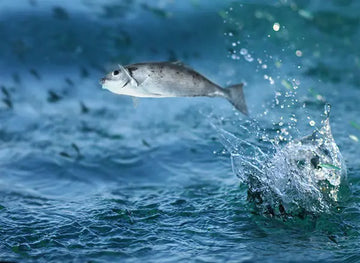Fish is a nutritious and delicious food that can be enjoyed in many ways. However, fish is also highly perishable and requires proper handling and storage to prevent spoilage and food borne illness. In this blog, we will explain how long you can store fish in the fridge and what are the rules to follow for storage.
How Long Can You Store Fish in the Fridge?
The shelf life of fish in the fridge depends on several factors, such as the type of fish, the freshness of the fish, the temperature of the fridge, and the packaging of the fish. The general guidelines for storing fish in the fridge are:
- Raw fish and shellfish: You can store raw fish and shellfish in the fridge for one or two days before cooking or freezing them. Make sure to keep them in the coldest part of the fridge, which is usually the bottom shelf, and at a temperature of 40°F (4°C) or lower.
- Cooked fish and shellfish: You can store cooked fish and shellfish in the fridge for three or four days. Make sure to refrigerate them within two hours of cooking and store them in airtight containers or wrap them tightly in foil or plastic wrap.
- Smoked, dried, or cured fish: You can store smoked, dried, or cured fish in the fridge for two to three weeks. Make sure to keep them in their original packaging or in a sealed container and away from other foods to prevent odor transfer.
What Are the Rules to Follow for Storage?
To store fish safely and keep it fresh for longer, you should follow these rules:
- Buy fresh fish from a reputable source: When buying fish, look for signs of freshness, such as bright eyes, shiny skin, firm flesh, and mild odor. Avoid fish that looks dull, slimy, soft, or smells fishy. Buy fish from a reliable fish counter where the fish is displayed on ice and the temperature is monitored. If possible, buy fish on the day you plan to cook it or freeze it as soon as you get home.
- Wrap and package fish properly: When storing fish in the fridge, wrap and package it properly to prevent moisture loss, odor transfer, and cross-contamination. You can use plastic wrap, resealable bags, foil, or airtight containers to store fish. For whole fish, it is recommended to clean and gut them before refrigeration. For shellfish, it is advisable to store them in their original packaging or a covered container with moistened paper towels. For fillets and steaks, you can place them on a cooling rack inside a large container with crushed ice below the rack and cover them with plastic wrap or foil. Replace the ice as it melts and drain the water.
- Freeze fish if you don’t plan to use it soon: If you don’t plan to use fish within one or two days of refrigeration, you should freeze it to extend its shelf life and preserve its quality. To freeze fish, wrap it tightly in moisture-proof bags or containers and label it with the date and type of fish. You can also freeze fish in a brine solution or a marinade to enhance its flavor and texture. Frozen fish can last for several months, depending on the type of fish and the freezer temperature. To thaw frozen fish, it is best to do it in the fridge overnight or in cold water for a short time in a sealed plastic bag. Do not thaw fish at room temperature or in the microwave, as this can affect its quality and safety.
Conclusion
Fish is a healthy and tasty food that can be enjoyed in many ways. However, fish is also highly perishable and requires proper handling and storage to prevent spoilage and food borne illness. To store fish safely and keep it fresh for longer, you should follow the guidelines and rules mentioned in this blog. By doing so, you can make the most of your fish and enjoy its flavor and nutrition. 😊





